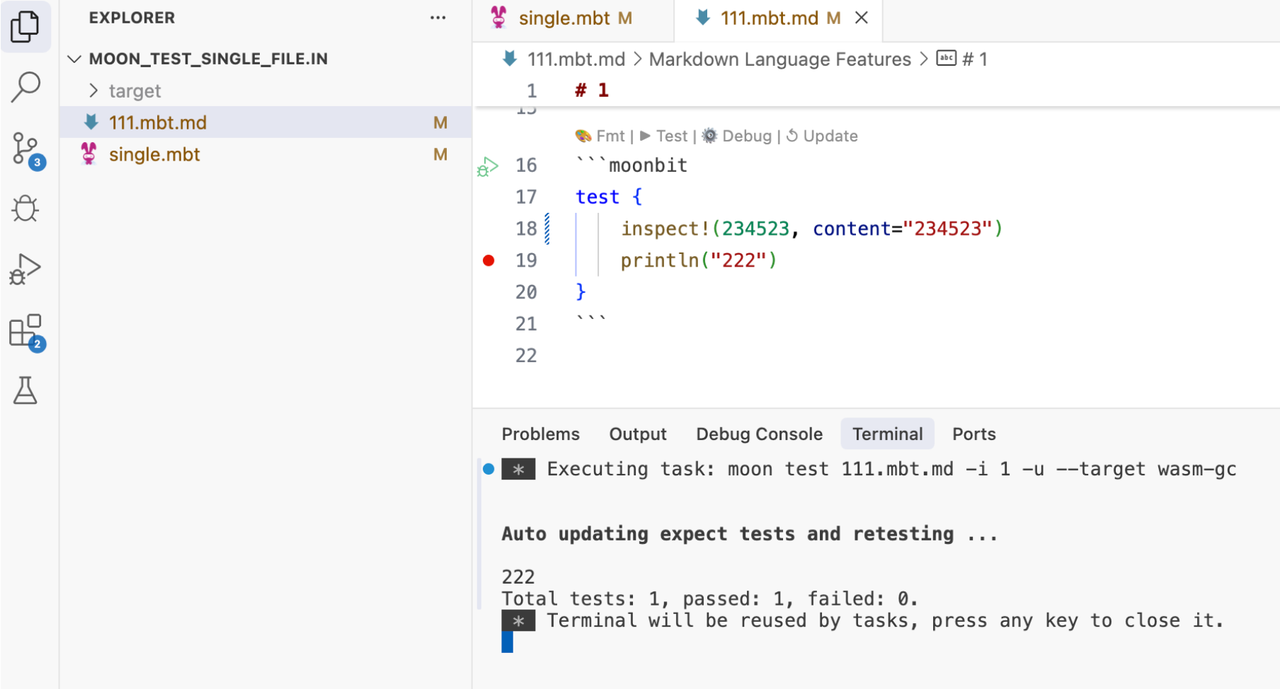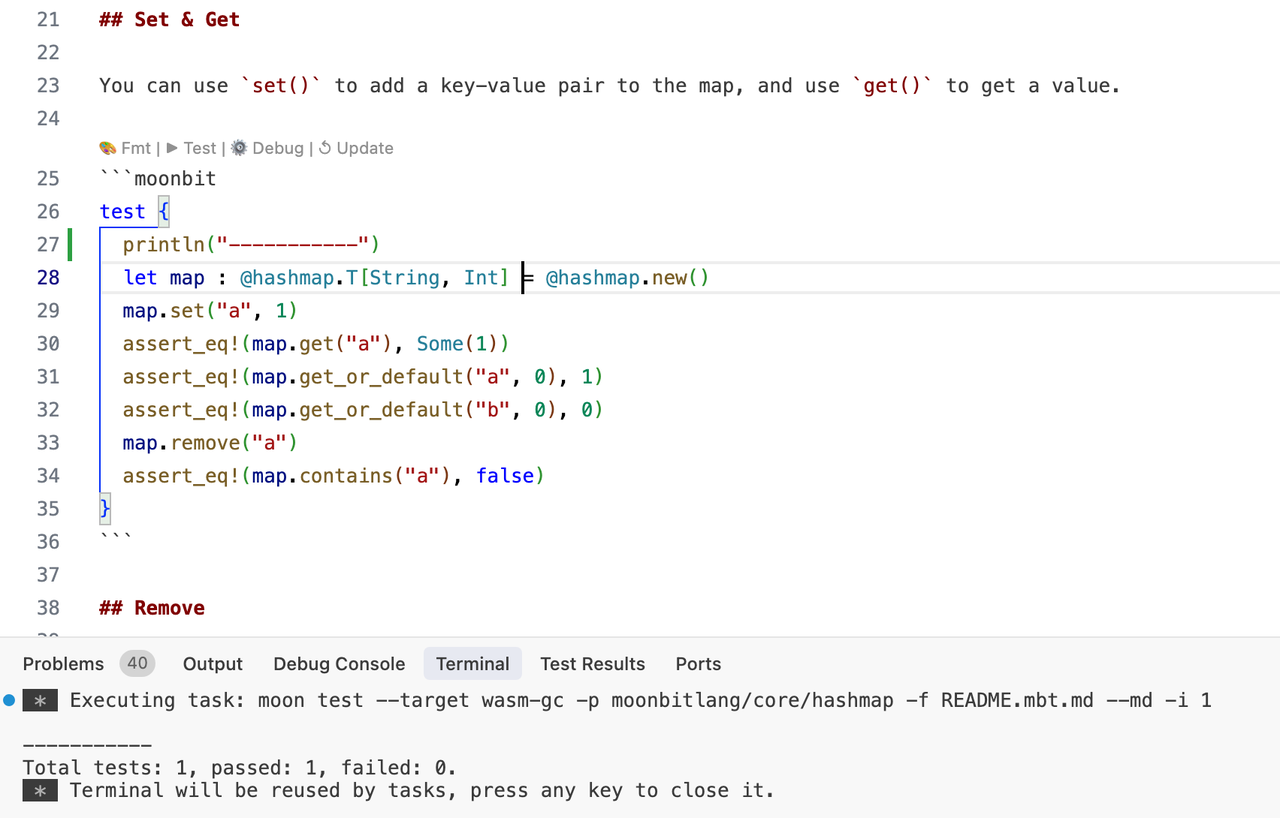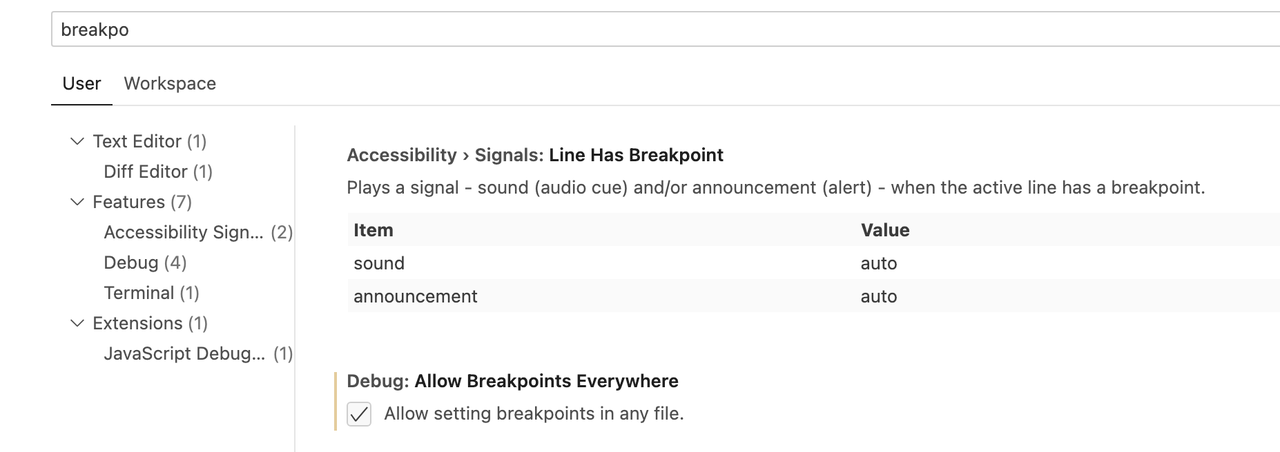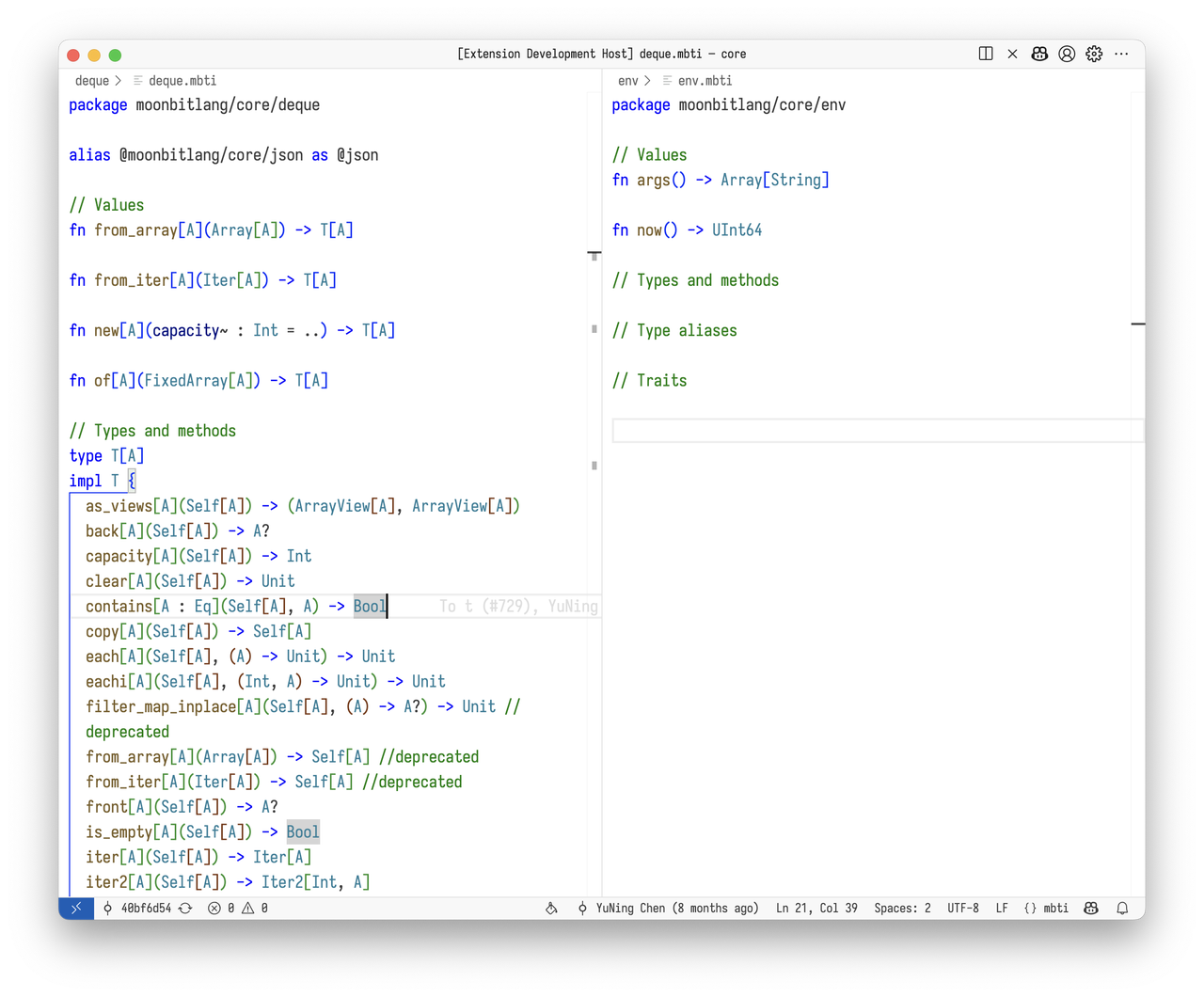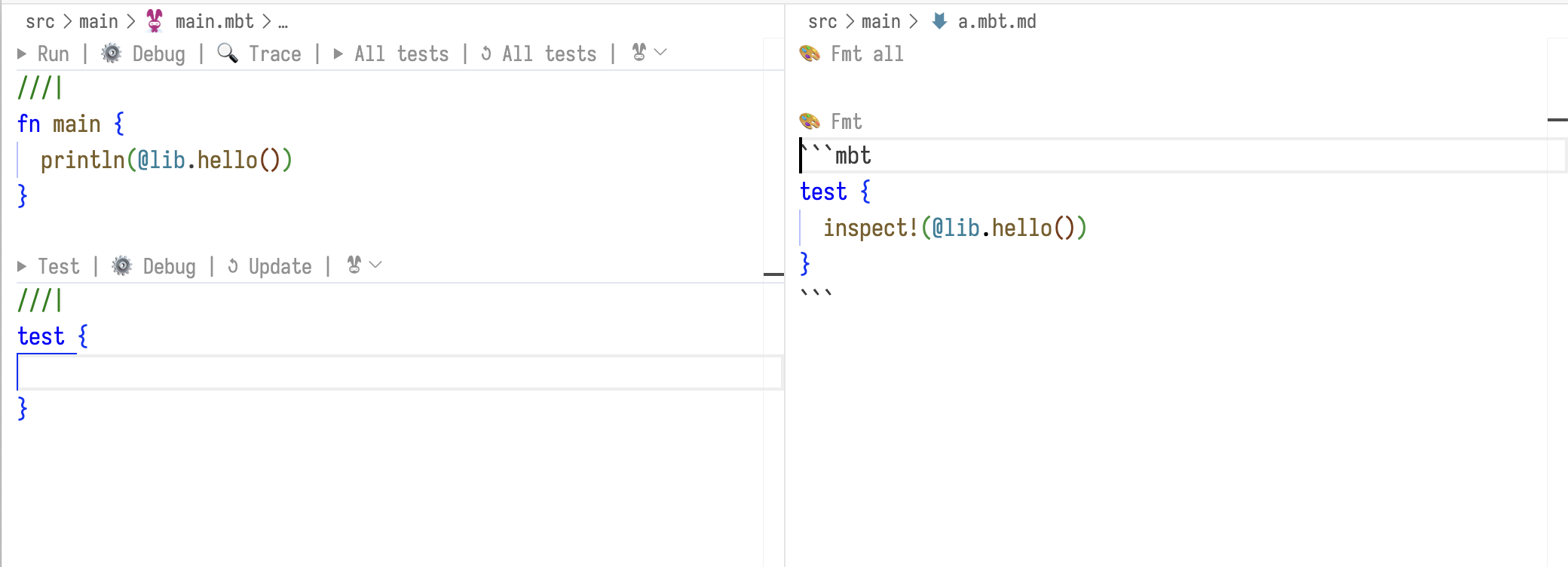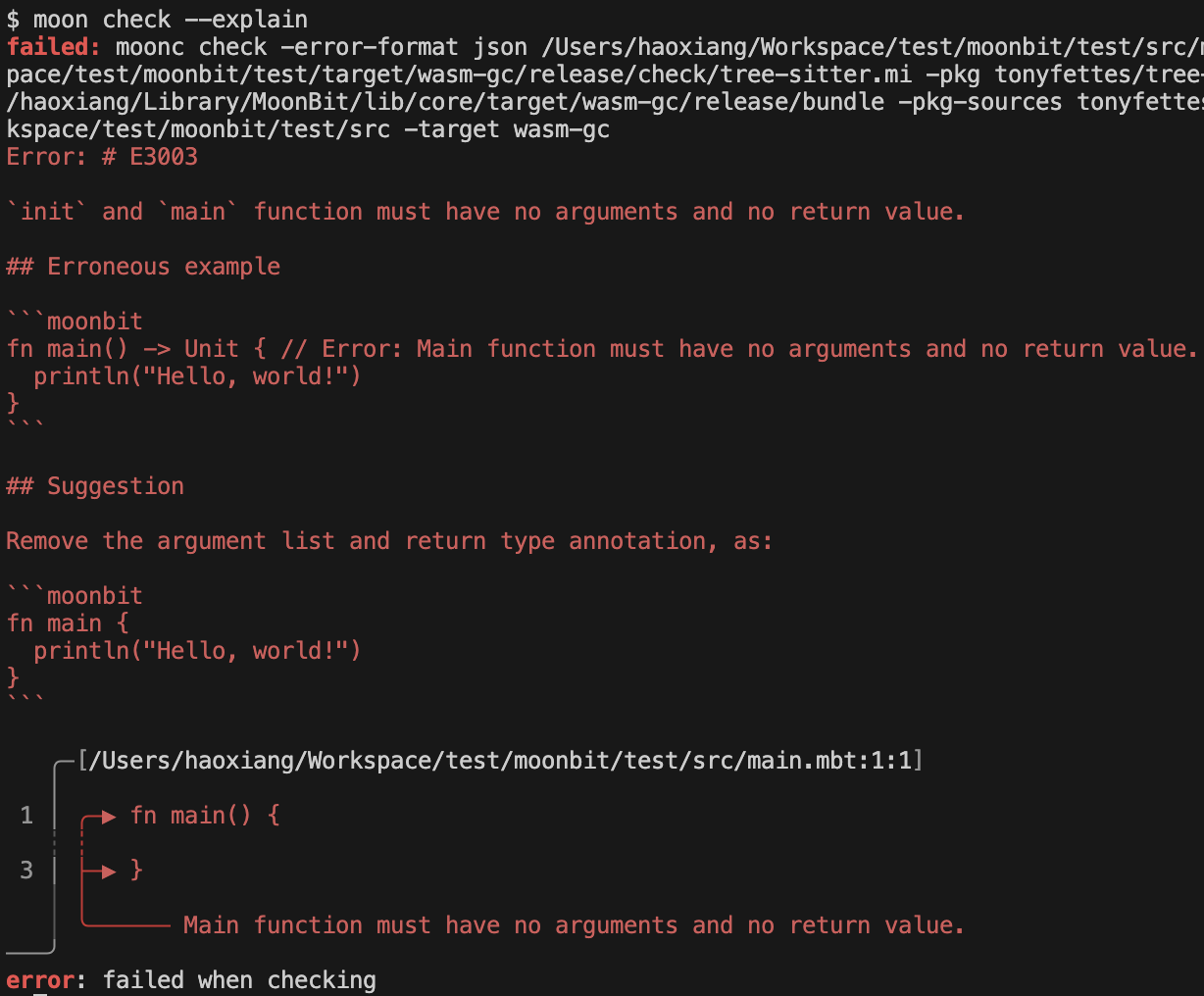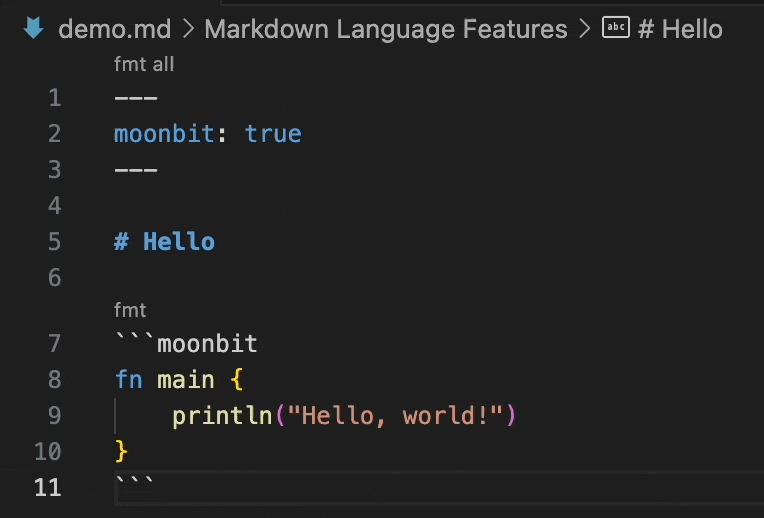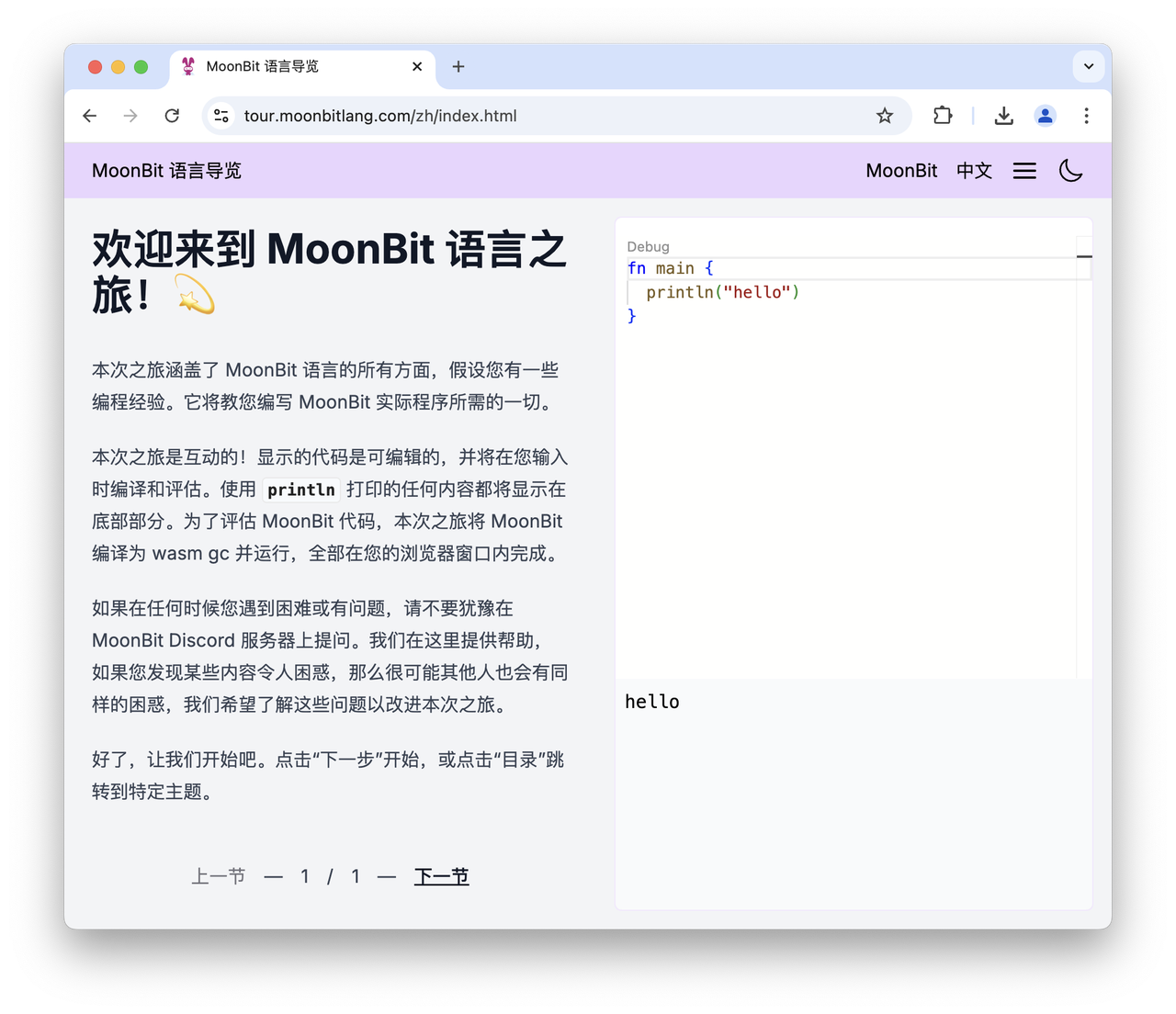2025-06-16
Language Updates
- Error Function Syntax Updated to
raise
-
The
!syntax for representing errors has been replaced with the keywordraise. The specific mappings are as follows:-
(..) -> T ! SomeErr=>(..) -> T raise SomeErr -
(..) -> T !=>(..) -> T raise -
(..) -> T ? Error=>(..) -> T raise?(This is a recently added error polymorphism syntax; it can be ignored if unfamiliar.) -
fn f!(..) { .. }=>fn f(..) raise { .. } -
fn!( ..) { .. }=>fn (..) raise { .. }
The above changes can be auto-migrated using code formatting.
-
- Error Type Declaration Syntax Changed
- The syntax for defining error types,
type! T .., has been changed tosuberror T ... This change can also be automatically migrated using code formatting.
- Deprecation of
f!(..)andf?(..)
- The
f!(..)andf?(..)syntaxes have been deprecated. Continued use of them will trigger compiler warnings. Code formatting can automatically remove!for migration, butf?(..)requires manual migration totry?. This is because for cases likef?(g!(..)), a simple change totry? f(g(..))would alter the semantics, causing errors ingto also be caught. Special attention is needed during manual migration off?(..).
- Function Type Parameter Syntax Aligned with
impl
- Several weeks ago, the position of type parameters in function definitions was moved from
fn f[..](..)tofn[..] f(..)to align withimpl. Now, the old syntax is deprecated and will trigger compiler warnings. This change can be automatically migrated using code formatting.
- Simplified Syntax for
typealiasandtraitalias
-
Use
typealias B as Aandtraitalias B as Ainstead oftypealias A = Bandtraitalias A = B.Example:Old:
typealias Matrix[X] = Array[Array[X]]New:
typealias Array[Array[X]] as Matrix[X]This change can be auto-migrated.
- Multi-parameter
loopsyntax deprecated
- The multi-parameter
loopsyntax has been deprecated and should be replaced with aloopthat takes a tuple as its parameter. This change alignsloopwithmatchmore consistently. The MoonBit compiler can optimize away the overhead of tuples inloopin release mode, so there is no need to worry about performance impacts.
- Trait Method Implementation Now Explicit
- For traits where "every method has a default implementation," previously all types would automatically implement them. Now, even if all methods of a trait have default implementations, explicit implementation is still required. If no custom implementation is needed,
impl Trait for Typecan be used to indicate "implement Trait for Type using all default methods."impl Trait for Typecan also serve as documentation or a TODO. MoonBit will automatically check whetherTypeimplementsTraitand report an error if it does not.
- Cannot Use Dot Syntax Call Implementation Method for External Types
-
Previously,
implfor external types could be called within the current package using.. However, this feature was not refactoring-safe: upstream additions of methods could alter the behavior of downstream code. Therefore, this behavior has been deprecated. As an alternative, MoonBit now supports locally defining new methods for external types, with syntax identical to regular method definitions. Methods defined for external types have the following characteristics:-
They cannot be
pub. This ensures no conflicts arise during cross-package collaboration. -
If the upstream package (where the type is defined) already has a method with the same name, the compiler will issue a warning.
-
Local methods have the highest priority during method resolution.
After this change, the resolution rules for x.f(..) are as follows (in order of priority):
- Local methods
- Methods from the package where
x's type is defined implfrom the package wherex's type is defined
-
- Auto Insertion of
to_jsonfor JSON Literals
- Within JSON literals, the compiler now automatically inserts
ToJson::to_jsoncalls for non-literal expressions, making JSON literals more convenient to write:
let x = 42
// Previously
let _ : Json = { "x": x.to_json() }
// Now
let _ : Json = { "x": x }- Virtual Package Support for Abstract Types
- The virtual package feature now supports abstract types. Abstract types can be declared in
.mbtiinterfaces, and different implementations can use different concrete types to fulfill the interface's abstract types.
- Simplified Syntax for Error Handling
- For handling errors in simple expressions,
trycan be omitted, andf(..) catch { .. }can be written directly.
- Reserved Words Warning Mechanism
- A new set of reserved words has been added. These are not currently keywords but may become keywords in the future. Using these names in code will trigger compiler warnings.
Upcoming Changes to Be Released Before the MoonBit Beta on June 18
-
New Arrow Function Syntax
(..) => exprThis syntax simplifies defining single-parameter inline functions. Example:
test {
let arr = [ 1, 2, 3 ]
arr
.map(x => x + 1) // Parentheses can be omitted for single parameters
.iter2()
.each((i, x) => println("\{i}: \{x}"))
}
-
Matrix Function Syntax Simplified
Matrix functions have been deprecated to simplify the syntax. Matrix functions of the form
fn { .. => expr }can be replaced with arrow functions, while other matrix functions should be replaced with explicitfnandmatch. -
Deprecation of
xx._Syntax innew typeDefinitionsPreviously, the
xx._syntax could be used to convert a newtype into its underlying representation. However, this syntax was visually ambiguous with partial application syntax (_.f(..)). Therefore, thexx._syntax has been deprecated. Instead, the compiler will automatically generate an.inner()method for each newtype to replace._. This change can be automatically migrated using code formatting. -
Warnings on Ambiguous Precedence
For ambiguous or less widely known operator precedence combinations, such as
<<and+, MoonBit will now issue warnings. Adding parentheses manually or via code formatting will resolve the warnings. -
Introduction of
letrecandandfor Local Mutual RecursionThe
letrecandandkeywords have been introduced for declaring locally mutually recursive functions, e.g.:
fn main {
letrec even = fn (x: Int) { ... } // Anonymous function
and odd = x => ... // Arrow function
}
- The right-hand side of the equals sign must be a function-like value, such as an anonymous function or arrow function. The previous implicit mutual recursion syntax using fn will be deprecated, though self-recursive functions can still be declared with fn.*
-
fnaliasCannot Be Used to Define Non-Function valuesThe
fnaliaskeyword is now restricted to function definitions only. Useletto define other types of values.
Standard Library Updates
- Leveraging the new error polymorphism feature, many higher-order functions in the standard library, such as
Array::each, can now accept callback functions that may raise errors.
Toolchain Updates
- Tests can now be written in the
mainpackage.moon testwill run tests in themainpackage, whilemoon runwill execute themainfunction. - The IDE's codelens now supports running tests in documentation.
moon testandmoon checknow include tests in documentation by default.
MoonBit Beta Launch on June 18 — Developer Updates Transition to Monthly Reports
After extensive refinement and continuous improvement based on community feedback, the MoonBit Beta version will be officially released on June 18, marking the transition to a more stable stage of the language.
Starting from this milestone, the MoonBit biweekly report will shift to a monthly cadence. Please stay tuned to this column for future updates.
We also welcome community feedback and discussion — feel free to share your thoughts and suggestions with us!
